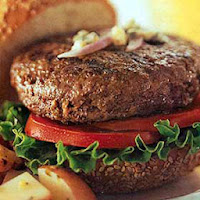Joe writes about his personal revelation of the changes he needs to make, and has made, to make this year his very own New Year, New You!
Part 2 of 2.....
Last week I asked, "What can I stop/start doing right now that will be relatively painless, sustainable and manageable to allow for my lifestyle change? And oh yeah, doesn't cost anything!"
First, I stopped drinking soda altogether. I am a man who enjoys a few Cokes every day. When I realized that wasn't healthy I switched to ginger ale. Like an alcoholic who goes from vodka to beer. That's still no the most desirable solution so now I drink lots of water!
 At first I drank at least a pot of very strong coffee a day to replace the sodas. I didn't start drinking coffee until my mid 30's. So after drinking that pot of very strong coffee and then shaking and sweating through the day I decided to do some research. That's when I found green tea. I know, yuck! But I actually love it now. I use 3-4 tea bags per cup. I didn't cut out the coffee altogether but I have easily cut my consumption in half and I never have it after 1pm of so. I absolutely feel better and green tea has lots of benefits and some caffeine too.
At first I drank at least a pot of very strong coffee a day to replace the sodas. I didn't start drinking coffee until my mid 30's. So after drinking that pot of very strong coffee and then shaking and sweating through the day I decided to do some research. That's when I found green tea. I know, yuck! But I actually love it now. I use 3-4 tea bags per cup. I didn't cut out the coffee altogether but I have easily cut my consumption in half and I never have it after 1pm of so. I absolutely feel better and green tea has lots of benefits and some caffeine too.

